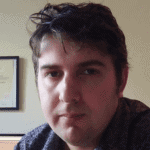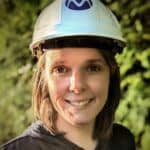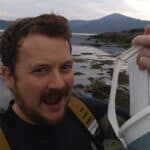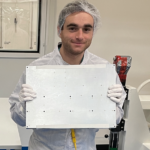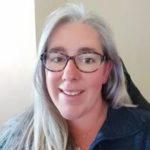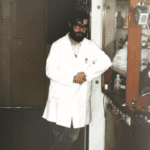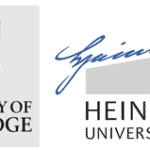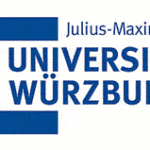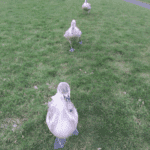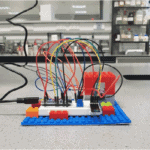Profile
Arno Kraft
-
About Me:
I am German and went to school and university in Germany. Moved to the UK in 1999 and work as a lecturer in Chemistry.
-
Read more
My hobbies are cooking, listening to audiobooks, watching movies (in French), and more recently sewing.
Foreign languages were not my strong point at school. Since I am not a native English speaker, practising languages is important. This explains why I like listening to audiobooks in English or French. Harry Potter in French is quite some fun. Since I read the books (in English) I know how it ends and this helps a lot. Watching movies and whodunnits in French is exciting as well. You learn, as well as start dreaming about the next holiday abroad.
-
My pronouns are:
he/him
-
My Work:
Teaching Chemistry and Admissions Tutor for Chemistry
-
Read more
Teaching includes lectures, workshops and laboratory classes. All these require quite a bit of preparation time. During lectures the lecturer speaks most of the time. In recent years, we replaced the classical lectures by more interactive classes. In a workshop, students the work while the lecturer just walks around and makes comments 🙂. Lab classes are important in Chemistry since Chemistry is a subject which requires hands-on practical skills. Students have to learn these skills. Later they can decide to specialise in an area that is practical, or move away from working in a lab and use computers instead for their research.
As Head of Teaching in my discipline, I take responsibility for a lot of paperwork and am attending a lot of meetings. This is important, although not always so exciting.
-
My Typical Day:
I wake up and have breakfast. Switch on the computer at home at 5:30am (yes, no typo) to do a bit of undisturbed work, take a break to exercise, then walk to University where I work from 8am, mostly in my office except when I am in class. Go home at 5pm.
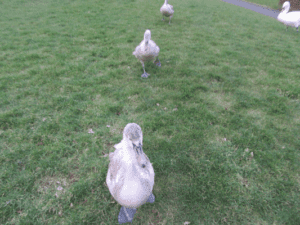
Being welcomed in the morning by the swans on our campus
-
Read more
At home, cook dinner usually. Then relax for the rest of the evening.
-
What I'd do with the prize money:
Together with some project students we have been working for some time on making small analytical instruments such as a colorimeter or fluorimeter. The idea was to use simple electronic components, an Arduino microprocessor and a little programming to create an affordable working instrument that could be used in schools.
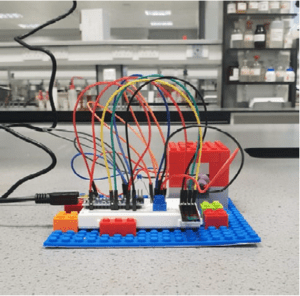
A Lego colorimeter
-
Education:
1967 – 1980: Went to primary school in Darmstadt, a city in central Germany, then 9 months secondary school in the same city. When we moved to another city, Wuerzburg, and I attended secondary school there.
The schools I went to were all named after famous people.
Goetheschule – named after a famous German poet in the 18th/19th century
Justus-Liebig Gymnasium – named after a famous chemist
Röntgen-Gymnasium – named after the famous scientist who discovered X-rays
At least, the last two guys had an influence on my career 🙂.
-
Qualifications:
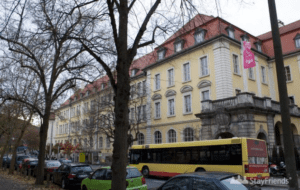
My old school
1980: Finished school with my Abitur, the final school exam in German secondary schools.
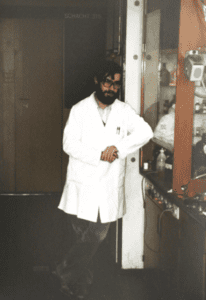
Working hard as a PhD student
1981 – 1989: Then went to the local University to study Chemistry, which took 5 years to earn my first degree. This was followed immediately by postgraduate research, during which I worked on a research project – another 3 years, although I spent only the first 2 1/3 years doing the actual lab work and the remaining 9 months writing it all up and preparing for the PhD viva.
-
Work History:
1989: When I finished my PhD after having passed the oral exam, I actually had no job. However, within a week I was asked on the staircase by one of the professors whether I would take a part-time job for a few months to teach his group some of the things I had done during my PhD. During the same week, I also got a phone call for an interview for a postdoc position. I accepted both. Postdoc = a period of one of more years after having finished with a PhD where you work in a research group doing research.
1990 – 1992: Then followed 3 years as a postdoc at the University of Cambridge, which was very exciting since it involved developing some of the first OLEDs or organic light emitting diodes that were brand-new at the time and in the 30 years that followed became household items.
1993 – 1999: Another 7 years back in Germany at the University of Dusseldorf working on my own research ideas and learning how to teach.
1999: Then got an offer from Heriot-Watt in Edinburgh to become a University lecturer.

Moving around a bit
-
Current Job:
Associate Professor and Head of Teaching for Chemistry. Sounds more glamorous than it is. The job as lecturer involves:
- teaching
- demonstrating in labs where I often ask students unexpected questions
- preparing lectures and new learning materials (slides, videos, apps)
- chatting with students 🙂
- a bit of research (time permitting)
Head of Teaching duties take officially 40% of my time, although it sometimes feels more like 80%:
- going to meetings
- organising teaching-related staff meetings
- paperwork (a lot)
- chairing Boards
- chatting with students 🙂
-
Employer:
Heriot-Watt University in Edinburgh

Getting a welcome by the swans on our campus
-
My Interview
-
What did you want to be after you left school?
I worked for over a year in a care unit of a hospital as part of a community service.
Were you ever in trouble at school?
Yes. My secondary S1 teacher had grave doubts that I would make it due to my poor grades in Maths and English (as a foreign language).
If you weren't doing this job, what would you choose instead?
Probably, be unhappy.
Who is your favourite singer or band?
No favourite.
What's your favourite food?
I am very fond on fine dining (as long as it's affordable). Anything that qualifies, really. .
If you had 3 wishes for yourself what would they be? - be honest!
Sounds like a fairy tale ...
Tell us a joke.
Sorry, no jokes ..
-


